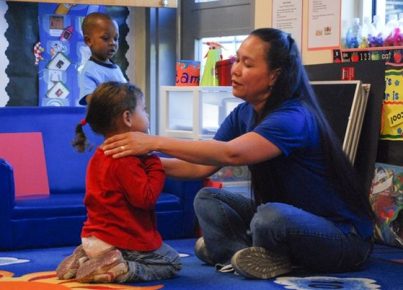Education plays an integral role in shaping the lives of individuals, and it is no surprise that there are numerous philosophies of education that guide teaching practices. These philosophies often influence educators, policymakers, and parents in making decisions about what learning experiences to provide for children and young adults. In this article, we will discuss three types of student-centered philosophies that focus on the learner’s experiences, needs, and growth.
1. Progressivism
This philosophy was made famous by American philosopher and educational reformer, John Dewey, whose theories have inspired generations of educators. At its core, progressivism advocates for learning experiences that encourage students to explore their interests and develop problem-solving skills through active inquiry and collaboration.
According to this philosophy, a curriculum should be based on students’ current interests and needs while providing ample opportunities for exploring new ideas and fostering critical thinking.
Progressive educators believe that social learning situations wherein students collaborate with peers are ideal for fostering creativity and communication. Additionally, teachers should act as facilitators rather than instructors, helping students navigate complex topics instead of providing prescriptive answers.
2. Constructivism
Emphasizing the active role learners play in building their own understanding of concepts, constructivism asserts that knowledge is not passively received but actively constructed. This theory claims that learning is most effective when students engage with challenging tasks at their level and receive appropriate guidance from teachers.
Constructivist educators encourage teaching practices that allow learners to actively explore concepts through hands-on activities. Educators should facilitate cognitive conflict or disequilibrium – a state where learners experience challenges or inconsistencies in their understanding – to encourage further questioning and deeper thinking.
In a classroom guided by constructivist principles, teachers help students develop questions about the subject matter and engage in discussions with their peers about possible solutions. The focus on constructing meaning collaboratively allows students to grapple with complex ideas and build on their existing knowledge.
3. Humanism
Inspired by the work of psychologist Carl Rogers, the humanistic philosophy of education focuses on fostering each student’s unique individual potential. Learning in a humanistic environment prioritizes students’ emotional and psychological well-being to create an atmosphere conducive to personal growth and self-discovery.
The cornerstone of humanistic education is empathy, respect, and trust between educators and learners. Teachers provide guidance without judgment to allow students to develop at their own pace while fostering a strong sense of self-worth. Emphasis is placed on creating a supportive classroom environment, where learners feel empowered to express themselves and engage openly in discussions without fear of judgment or failure.
A curriculum designed with humanistic principles will prioritize personal and creative self-expression, social responsibility, and the development of interpersonal skills over purely academic achievements.
Conclusion
These three student-centered philosophies – progressivism, constructivism, and humanism – emphasize the importance of tailoring educational experiences around each learner’s unique needs and capabilities. By providing engaging, collaborative, and supportive learning environments, educators who adopt these philosophies help to foster well-rounded individuals prepared to meet the challenges of the modern world.





